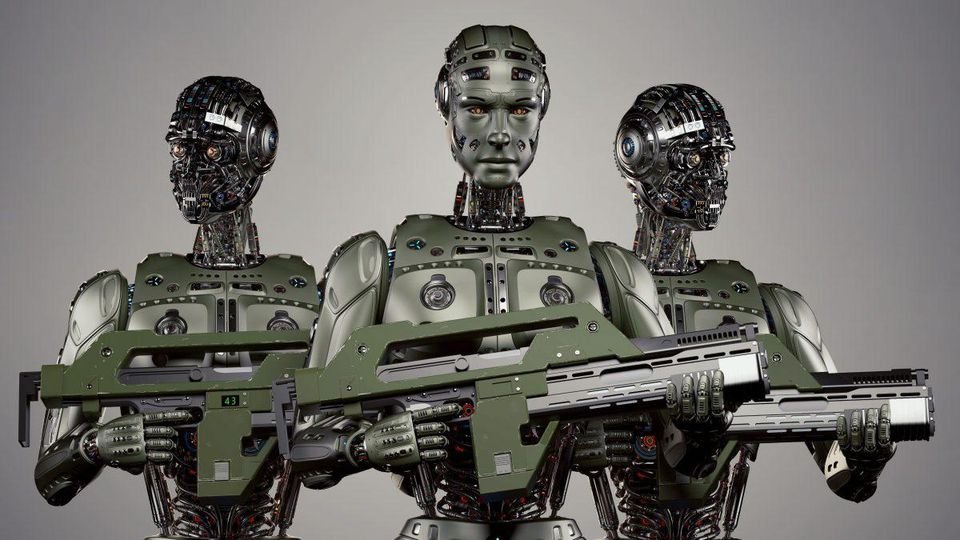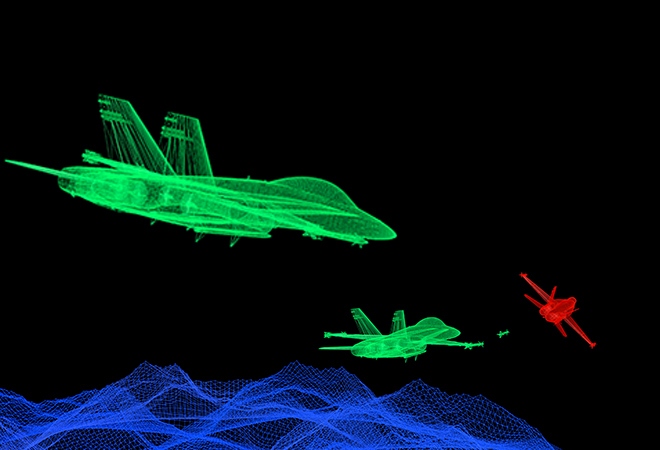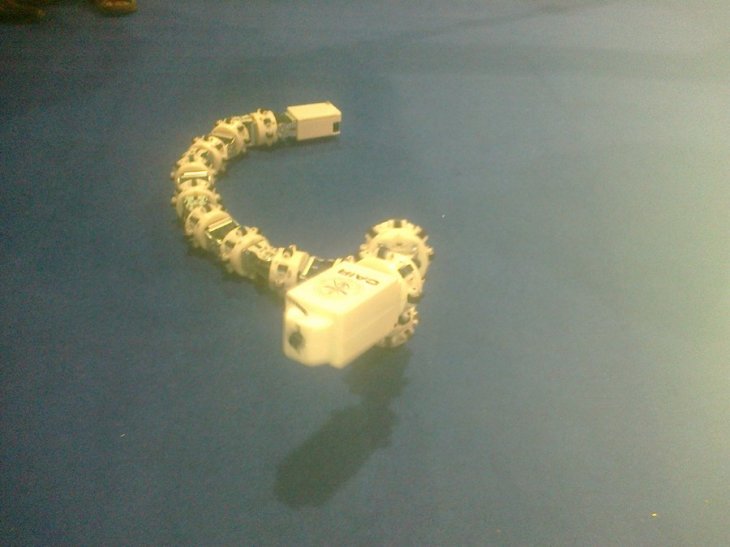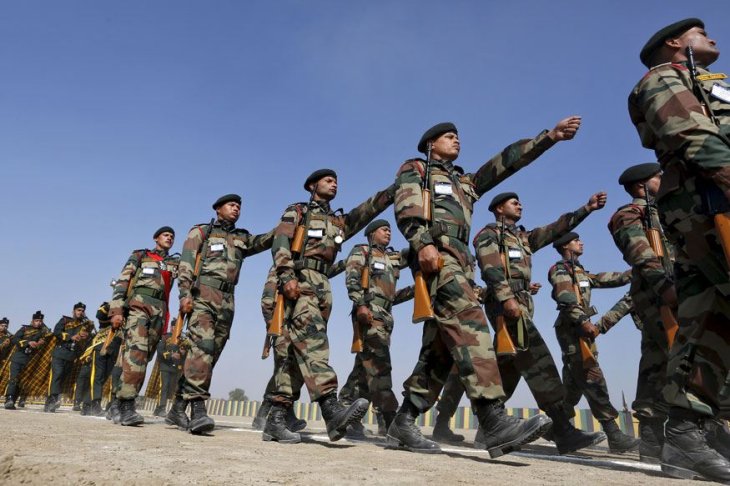AI Implications In Military Operations: India's Situation, Challenges, And Solutions
Dhir Acharya - Sep 04, 2019

Artificial Intelligence, AI, can significantly change how military operations and civilian activities are conducted. And what's India up to?
- AI Intimidation Tactics: CEOs Turn Flawed Technology Into Employee Fear Machine
- David vs. Goliath 2.0: How DeepL's NVIDIA SuperPOD Makes Google Translate Look Like Dial-Up Internet
- The Great AI Suitcase Caper: How China Pulled Off Tech's Most Audacious Smuggling Operation
The Industrial 4.0, or Artificial Intelligence (AI) as we all know, has been leading to big leaps in technological and scientific innovation in many fields. AI can significantly change how military operations and civilian activities are conducted. Up to now, the idea of mastering military superiority has been limited to a few countries with large armed forces such as the US, Russia, and China.
Artificial intelligence can have interesting impacts on the future distribution of military power. The potentials of AI has resulted in an arms race in which the role of conventional military capabilities will shrink. Hence, middle powers that lead in civilian AI technology will also be able to compete for hard power, and India is racing into this field and applying artificial intelligence for defence. In January, Army chief Gen. Bipin Rawat said that it will be too late for the country if its armed forces don’t embrace artificial intelligence soon enough.

While there are a lot of ideas of letting AI do tasks in replacement of humans via digitally-controlled robots or a computer, the idea of how to achieve AI also varies. In an era when data science is the new norm of the technology industry, it’s perceived to be inseparable from AI. However, machine learning is just among several tools contributing to the creation of AI tech, besides autonomous locomotives, robotics, natural language processing, as well as other tech mediums. Therefore, we need to have a holistic understanding of India’s artificial intelligence landscape.
What have we done so far?
In June, the Ministry of Defence (MoD) submitted a report on a multi-stakeholder task force that it constituted for Strategic Implementation of Artificial Intelligence and Defence back in February 2018. To implement the recommendations, the MoD provided an institutional framework used in policy implementation, which laid out a vision for building capacity and issued guidelines to defence organizations.
In February this year, the ministry founded a high-level Defence AI Council (DAIC) lead by Minister of Defence tasked with providing strategic direction to adopt AI in defence. The DAIC will be responsible for guiding the partnership between industry and the government as well as reviewing recommendations around acquiring startups and technology. The council also has the responsibility for envisioning the formation of DAIPA (Defence AI Project Agency) as the central executive body.

As per the order from the ministry, the main focus must be on building capacity within defence machinery. There are several tasks including collecting data, patents, holding training and internships programs and sabbaticals, etc. The ministerial budgetary allocation will give each Service Headquarter (SHQ) an Rs 100 crore budget specifically for developing AI applications. Artificial intelligence is considered a ‘force multiplier,’ which the task force ordered all defence organizations to lay down strategies of AI appropriation.
As we mentioned above, robotics also contributes to achieving AI. DRDO’s Centre of Artificial Intelligence and Robotics (CAIR) has developed products powered by autonomous technology. The organization has focused on net-centric communication systems to use in tactical command control. Regarding reconnaissance and surveillance, CAIR has created intriguing probes such as sentries, hexa-bots, and snake robots. It owns a huge library for data mining toolboxes as well as AI-based algorithms which it can use for video/image recognition, swarming, and NLP. But from a data-based approach to AI, efficient learner algorithms are only useful for certain purpose if they do not come with the hardware for collecting and processing mass data.
A few questions left
Generally, the main challenges for adopting AI are explained in the ‘National Strategy for Artificial Intelligence #AIforAll’ document by Niti Aayog in 2018. Additionally, the military sector has to overcome a lot of challenges to achieve artificial intelligence.
Firstly, policymakers must understand the objectives that AI aims to achieve in India’s strategic context to widely apply AI in defence. What type of AI is needed? Do we use both autonomous drones with adversary aircraft in dogfights or use autonomous patrolling vehicles at the country’s borders to do the job? How much autonomy should the machines have on the battlefield?

It’s necessary to have a clear vision of how to implement artificial intelligence as our country cannot afford big investments in this sector. This is the matter of allocating budgets between public welfare and national security as we do not have vast resources like developed countries.
Secondly, India lacks the critical infrastructure to deploy AI for both military and civilian purposes. Artificial intelligence runs complex algorithms on huge amounts of data, which requires robust hardware as well as enabling data banks housed domestically. If the data is harnessed on a remote server outside the country, it can be difficult for India to preserve its strategic autonomy.
Thirdly, the private sector will have a critical role in making AI efficient and accessible. Due to the requirement of capital and advanced skills, there should be a dedicated ecosystem to support the free flow of both skill and money. According to the current FDI policy in defence, however, only 49 percent of foreign investment can be used for the automatic route and government approval is required. India has always been conservative about giving control of the defence industry to the private sector.
Where do we go from here?

The EU, China, and the US, as well as other leading powers, have their own vision documents for R&D programs in AI. India should first have a clear strategic vision when it comes to AI. Though there are limitations in terms of resources, our country has world-class academicians in engineering and computer science across IISERs, NITs, IISc, and IITs. A synergy of policies, industries, and academia is important to realize the strategic, cultural, and societal implications of artificial intelligence in defence, which will help India answer the questions like those we mentioned above.
The government need to develop a supportive ecosystem where AI can thrive. There need to be investments in crucial infrastructure to keep data servers inside the country. Not only does that ensure strategic independence, but it also helps us avoid privacy concerns.
Featured Stories

Features - Jul 01, 2025
What Are The Fastest Passenger Vehicles Ever Created?

Features - Jun 25, 2025
Japan Hydrogen Breakthrough: Scientists Crack the Clean Energy Code with...

ICT News - Jun 25, 2025
AI Intimidation Tactics: CEOs Turn Flawed Technology Into Employee Fear Machine

Review - Jun 25, 2025
Windows 11 Problems: Is Microsoft's "Best" OS Actually Getting Worse?

Features - Jun 22, 2025
Telegram Founder Pavel Durov Plans to Split $14 Billion Fortune Among 106 Children

ICT News - Jun 22, 2025
Neuralink Telepathy Chip Enables Quadriplegic Rob Greiner to Control Games with...

Features - Jun 21, 2025
This Over $100 Bottle Has Nothing But Fresh Air Inside

Features - Jun 18, 2025
Best Mobile VPN Apps for Gaming 2025: Complete Guide

Features - Jun 18, 2025
A Math Formula Tells Us How Long Everything Will Live

Features - Jun 16, 2025
Comments
Sort by Newest | Popular